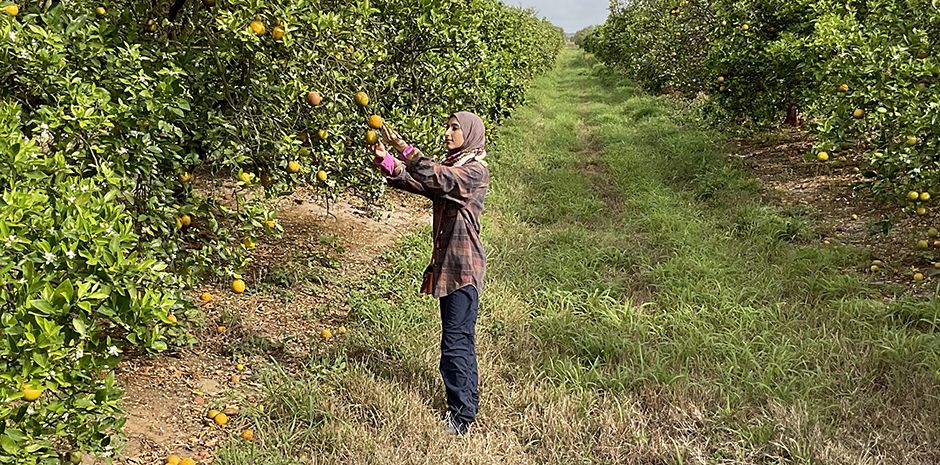When Asmaa Odeh was just a 12-year-old living in southwest Florida, her mother was diagnosed with colon cancer. “I remember crying about it because I was like, ‘Wow, there’s going to be some change in my life now,’” Odeh says.
Change came, but not in the way Odeh envisioned. Her mother’s battle with cancer upended the family and altered the direction of Odeh’s education, her career, and her life’s mission.
Her mother moved from the family home to a suburb of Chicago where her Palestinian family could better care for her. Odeh took frequent trips and spent several summers there, where she discovered her family’s native foods and learned the critical role that diet played in her mother’s recovery.
In the Palestinian neighborhood of Bridgeview, surrounded by store signs written in Arabic, Odeh realized the staggering difference between fresh falafel, hummus, and baba ganoush, and the fast-food burgers she had grown up eating. She even visited Palestine and Jordan to learn more about the plant-based, organic food systems that were so foreign to her.
“I grew this fascination in health, in what we eat, and what is in our supermarkets,” Odeh says. “Seeing the different food systems really inspired me to pursue that.”
At the University of Miami, she struggled to figure out which major could accommodate her multifaceted vision of expanding healthy food options, holding grocery stores to account for their failure to provide those options, and pressuring government agencies to help. So she took advantage of the College of Arts and Sciences’ Independent major program, which allows students to customize their own B.A. or B.S. degrees. The result: a double major in criminology and sociomedical sciences in health policy.
Maria Galli Stampino, dean of undergraduate affairs, was initially uncertain about Odeh’s proposal, but quickly realized the potential. “The combination was unique—most students doing an Independent major follow more traditional paths,” Stampino says. “In the course of our initial conversation, however, Asmaa was able to make the connections clear to me, and her passion was undeniable.”
Odeh went to work and proved Stampino right. She took criminology classes, health management and policy classes. She participated in the 2016 University of Miami Bioethics Bowl, cooked traditional Palestinian cuisine for the University’s International Week, and created “Food for U,” a program that teaches students how to make nutritional food. She also interned for former University President Donna Shalala, serving as a health policy analyst during Shalala’s congressional campaign.
Odeh is now the food policy coordinator at the Southwest Florida Regional Planning Council and has already won a $100,000 grant from the Healthiest Cities and Counties Challenge to create a food policy council in Collier County, and a $643,500 grant from the U.S. Department of Agriculture to better publicize local food producers.
Odeh, 27, is back in southwest Florida with her father and her fully recovered mother. And while she laments the slow pace of progress toward her goals and suffers through some “very hard days” trying to convince government and corporate officials to provide healthier food options, she’s seen enough progress to keep fighting.
“If we can get there together, I think the world will be a better place,” she says.

